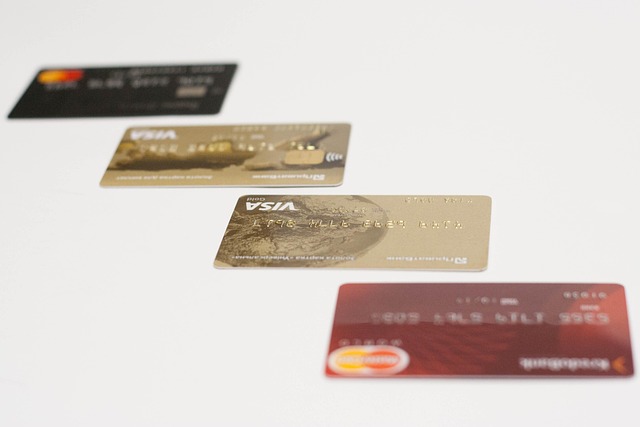Checking Account Bonuses: Complete Qualification Guide
Banks compete fiercely for new customers by offering attractive checking account bonuses that can range from $100 to $500 or more. These promotional offers provide an excellent opportunity to earn money simply by opening an account and meeting specific requirements. However, qualifying for these bonuses requires understanding eligibility criteria, meeting deposit minimums, and navigating various terms and conditions that banks impose.

How to Qualify for Checking Account Bonuses: A Step-by-Step Guide
The qualification process for checking account bonuses follows a predictable pattern across most financial institutions. First, you must be a new customer, typically defined as someone who hasn’t held an account with that bank within the past 12 to 24 months. Next, you’ll need to open the specified checking account type within the promotional period and make an initial deposit that meets the minimum requirement.
Most banks require you to set up direct deposit within 60 to 90 days of account opening. This direct deposit must usually meet a minimum monthly amount, often ranging from $500 to $2,000. Some institutions accept multiple smaller direct deposits that total the required amount, while others require a single qualifying deposit. Additionally, you may need to complete a certain number of debit card transactions or maintain a minimum account balance for a specified period.
Checking Account Bonus Eligibility: What You Need to Know
Understanding eligibility requirements prevents disappointment and ensures you can successfully claim your bonus. Age requirements typically start at 18 years old, and you must have a valid Social Security number and government-issued identification. Most banks restrict bonuses to residents of specific states or regions where they operate, so geographic limitations often apply.
Credit history rarely affects checking account bonus eligibility, but some banks may review your ChexSystems report, which tracks banking history including overdrafts, bounced checks, and account closures. A negative ChexSystems record could result in account denial. Additionally, many banks limit customers to one bonus per household or require that family members wait extended periods between bonus claims.
Employment status doesn’t typically affect eligibility, but having direct deposit capability significantly increases your chances of meeting bonus requirements. Students, retirees, and gig workers can often qualify by setting up direct deposits from various sources including Social Security, pension payments, or freelance income platforms.
Qualifying for Checking Account Perks: Tips and Insights
Maximizing your success with checking account bonuses requires strategic planning and attention to detail. Before applying, carefully read all terms and conditions, paying special attention to direct deposit definitions, qualifying transaction types, and timeline requirements. Some banks have strict interpretations of what constitutes direct deposit, excluding transfers from other banks or peer-to-peer payment services.
Consider opening accounts early in the promotional period to allow maximum time for meeting requirements. Set up direct deposit immediately after account opening, as processing times can take several pay cycles. Keep detailed records of all deposits, transactions, and communications with the bank to resolve any disputes that may arise.
Maintain the account in good standing throughout the bonus period by avoiding overdrafts, maintaining minimum balances, and completing all required activities. Some banks claw back bonuses if accounts are closed within six months to a year after opening, so factor in the commitment period when applying.
| Bank | Bonus Amount | Direct Deposit Requirement | Minimum Balance | Time Limit |
|---|---|---|---|---|
| Chase | $200-$300 | $500+ monthly | $1,500 | 90 days |
| Bank of America | $100-$300 | $250+ monthly | $500 | 90 days |
| Wells Fargo | $200-$400 | $500+ monthly | $500 | 60 days |
| Citibank | $200-$500 | $1,000+ monthly | $1,500 | 60 days |
| Capital One | $200-$400 | $500+ monthly | $0 | 75 days |
Prices, rates, or cost estimates mentioned in this article are based on the latest available information but may change over time. Independent research is advised before making financial decisions.
Common Pitfalls and How to Avoid Them
Many customers miss out on bonuses due to preventable mistakes. The most common error involves misunderstanding direct deposit requirements. Bank-to-bank transfers, mobile check deposits, and cash deposits typically don’t qualify as direct deposits. Only electronic deposits from employers, government agencies, or other third-party sources usually count.
Another frequent issue occurs when customers fail to maintain accounts for the required period. Banks often specify that accounts must remain open and in good standing for 90 to 180 days after the bonus posts. Closing accounts early or allowing them to become dormant can result in bonus reversal and potential fees.
Timing mistakes also cost customers bonuses. Missing deadlines for direct deposit setup, failing to complete required transactions within the specified timeframe, or opening accounts after promotional periods end all disqualify applicants from earning bonuses.
Reading promotional materials carefully and contacting customer service for clarification on unclear requirements helps avoid these costly oversights. Many banks provide detailed FAQ sections or customer service representatives who can explain specific terms and conditions.
Successfully qualifying for checking account bonuses requires careful planning, attention to detail, and commitment to meeting all requirements within specified timeframes. By understanding eligibility criteria, following step-by-step qualification processes, and avoiding common pitfalls, you can take advantage of these lucrative promotional offers. Remember that bonus requirements vary significantly between banks, so researching each offer thoroughly ensures the best chance of success and helps you earn hundreds of dollars simply for banking activities you likely already perform.




